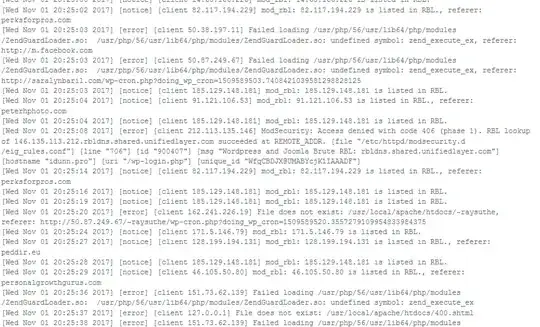I have the following Server Side Includes within an .html file called test.html...
<!--#include virtual="/cgi-bin/myScript.cgi"-->
<!--#include virtual="/includes/myFile.html"-->
When I view test.html live in my browser, myFile.html is being inserted/rendered just fine, however myScript.cgi is giving me
[an error occurred while processing this directive]
From the browser address bar,
/cgi-bin/myScript.cgiis rendering output just fine, proving the file exists at the path and the permissions are correct (755).The SSI handlers are set correctly as
myFile.htmlis included just fine, proving the page is being parsed.
So if SSI is working and myScript.cgi is working, why isn't #include virtual working on this script?
As a side-note, this is on a cPanel hosting account and I have many other accounts (sites) at the server at the same hosting company with the same configuration. The others are all working as expected.
- cPanel Version: 11.30.6 (build 3)
- Apache version: 2.2.17
- Architecture: x86_64
- Operating system: linux
- Perl version: 5.8.8
- Kernel version: 2.6.18-194.32.1.el5
- cPanel Pro: 1.0 (RC1)
The script simply returns the year from today's date as formatted text. The output is preceded by Content-type: text/html\n\n and it's not a new Perl script. It's working on the other accounts.
